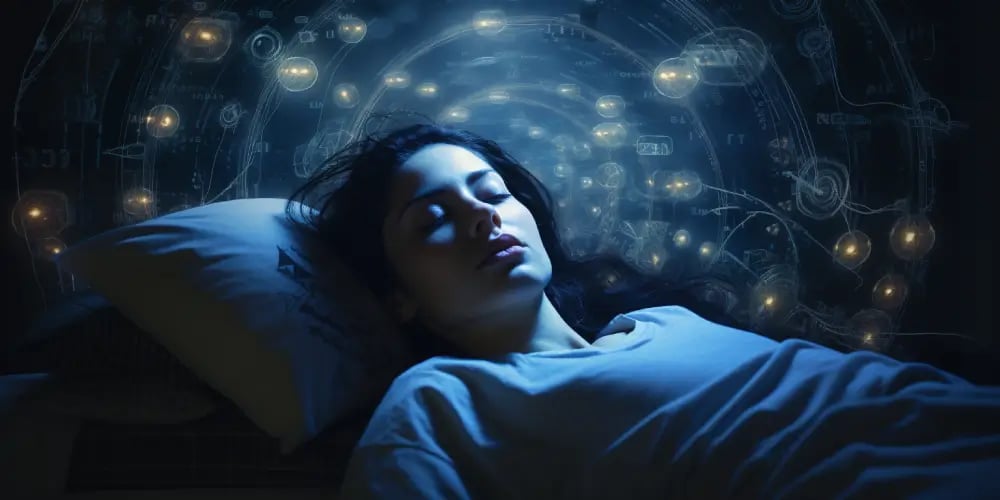Topics: Sleep Apnea, Insomnia, cpap
Melatonin for Sleep Disorders: Can It Cure Insomnia and Delayed Sleep Phase Syndrome?
Sleep disorders can disrupt our lives, leaving us feeling tired, irritable, and less productive. Many individuals grapple with two common sleep disorders: insomnia and delayed sleep phase syndrome (DSPS). Fortunately, there are various treatments available, one of which is melatonin. In this comprehensive guide, we will explore the role of melatonin in managing sleep disorders, particularly insomnia and DSPS. We'll dive into the science behind melatonin's effectiveness, dosage guidelines, potential side effects, and how to combine it with other sleep therapies for optimal results.
Exploring Melatonin for Sleep Disorders
Melatonin is a hormone naturally produced by the pineal gland in the brain. It plays a pivotal role in regulating our sleep-wake cycle, also known as the circadian rhythm. This hormone is responsible for making us feel sleepy at night and alert during the day. Melatonin levels typically rise in the evening, signalling to our bodies that it's time to sleep and decrease in the morning to wake us up.

Melatonin's role in sleep regulation is essential for maintaining a healthy sleep pattern. When our bodies produce melatonin at the correct times, it helps us fall asleep faster and stay asleep throughout the night. However, disruptions in melatonin production or exposure to excessive light, especially in the evening, can lead to sleep disturbances.
Understanding Insomnia: Causes and Symptoms
Insomnia is a common sleep disorder characterized by difficulty falling asleep, staying asleep, or experiencing non-restorative sleep. It can be caused by various factors, including stress, anxiety, medical conditions, medications, and poor sleep habits. Insomnia symptoms often include restlessness, daytime fatigue, irritability, and reduced cognitive function.
Furthermore, Delayed Sleep Phase Syndrome (DSPS) is another sleep disorder where an individual's circadian rhythm is significantly delayed. People with DSPS tend to have trouble falling asleep at a conventional bedtime but can stay asleep if allowed to sleep according to their natural sleep-wake schedule. This condition often results in difficulty waking up for morning commitments, such as work or school.
Does Melatonin Cure Insomnia?
Melatonin supplements are commonly used to alleviate insomnia symptoms. The science behind this lies in melatonin's ability to reset the circadian rhythm. By taking melatonin at the right time, individuals with insomnia can help their bodies recognize when it's time to sleep, potentially reducing the time it takes to fall asleep and improving overall sleep quality.
Melatonin's effectiveness in treating insomnia can vary from person to person. The appropriate dosage also varies depending on factors such as age, the severity of insomnia, and individual response. Generally, melatonin supplements are available in various forms, including pills, capsules, and even gummies. It's crucial to consult with a healthcare professional before starting melatonin supplementation to determine the right dosage and timing for your specific needs.
While melatonin is generally considered safe when used appropriately, it can have side effects, including daytime drowsiness, headaches, and dizziness. To minimize these risks, following recommended dosages and timing is essential. Additionally, melatonin may not be suitable for everyone, particularly individuals with certain medical conditions or those taking specific medications. Consulting with a healthcare provider is crucial to ensure its safety and effectiveness in your case.
Melatonin and Delayed Sleep Phase Syndrome (DSPS)
For individuals with DSPS, melatonin can be a valuable tool for shifting their circadian rhythm to a more conventional schedule. By taking melatonin supplements in the evening, individuals can gradually adjust their internal clocks, making it easier to fall asleep and wake up at desired times. However, the timing and dosage of melatonin must be carefully tailored to each individual's unique sleep patterns.

In addition to melatonin supplementation, individuals with DSPS can benefit from other strategies to manage their condition. These may include exposure to bright light in the morning, maintaining a consistent sleep schedule, and avoiding exposure to screens or bright lights in the evening. Combining these approaches with melatonin supplementation can be especially effective in resetting the circadian rhythm.
Combining Melatonin with Sleep Therapy
While melatonin can be a valuable tool in managing sleep disorders, it's often most effective when used in conjunction with other sleep therapies. Comprehensive sleep solutions may include lifestyle changes, behavioral therapies, and the use of advanced sleep devices.
ResMed, a trusted leader in sleep solutions, offers a range of innovative devices designed to address various sleep disorders, including sleep apnea, insomnia, and DSPS. These devices, such as CPAP and BiPAP machines, work in harmony with melatonin and other treatments to optimize sleep quality. ResMed also provides expert guidance and support to help individuals achieve better sleep and improved overall well-being.
Making Informed Choices for treating sleep disorders
Before starting melatonin supplementation or any other treatment for sleep disorders, it's crucial to consult with a healthcare professional. They can assess your condition, provide personalized recommendations, and ensure that any treatments you choose are safe and appropriate for your unique needs.
Remember that melatonin is just one piece of the puzzle when it comes to managing sleep disorders. Incorporating lifestyle changes, such as maintaining a consistent sleep schedule, reducing stress, and creating a sleep-conducive environment, can enhance the effectiveness of melatonin and other treatments.
Conclusion to Cure Insomnia and Delayed Sleep Phase Syndrome
In conclusion, melatonin is a valuable tool for managing sleep disorders, particularly insomnia and delayed sleep phase syndrome. Its ability to reset the circadian rhythm can help individuals achieve better sleep and improve overall well-being. However, melatonin is most effective when used in conjunction with other sleep therapies and lifestyle changes.
If you're ready to explore the potential of melatonin and comprehensive sleep solutions, consider ResMed's innovative sleep devices and expert guidance. Visit ResMed Solution to Sleep Apnea to discover how ResMed can help you take control of your sleep health and embark on a journey to better sleep.
